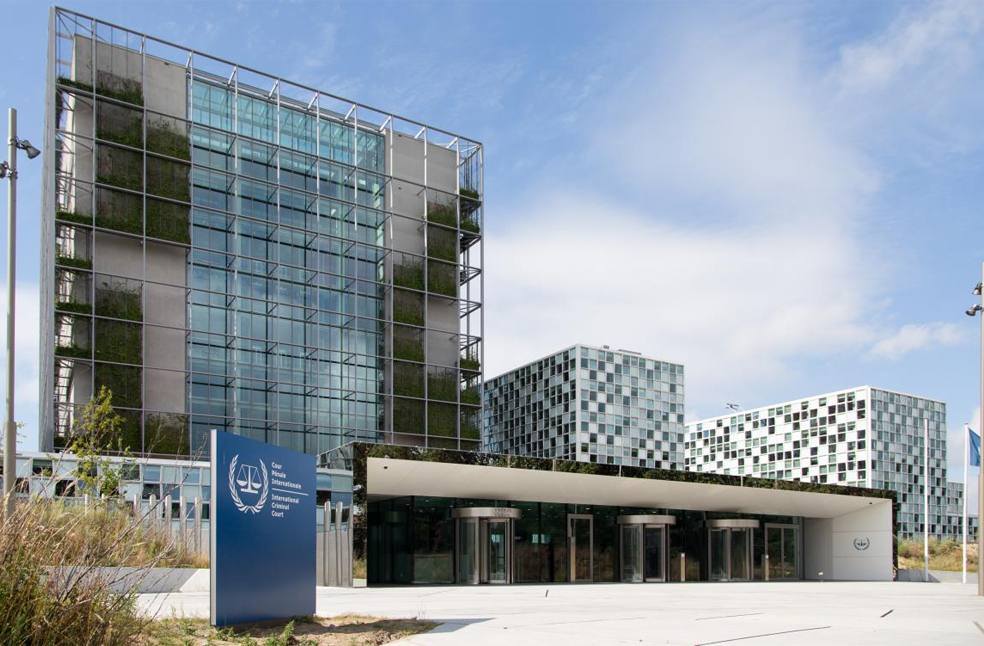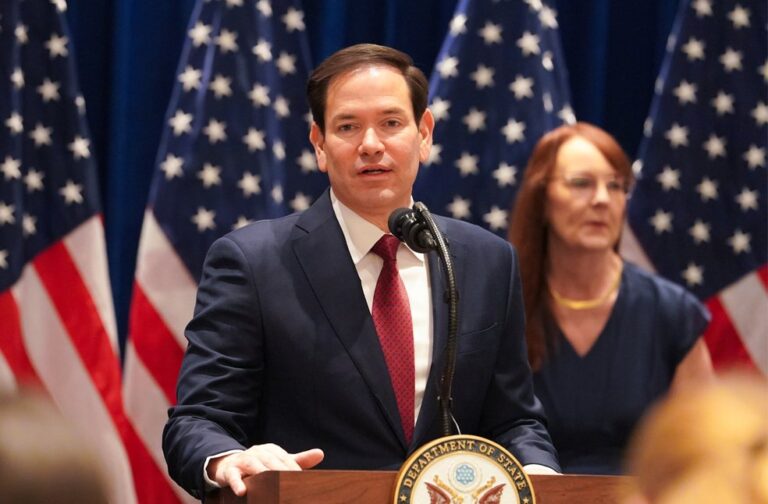Washington DC: The administration of President Donald Trump has followed through on its threat to impose sanctions on officials of the International Criminal Court (ICC).
The move targets four judges accused of ‘illegitimate and baseless actions’ against the United States and its allies. The sanctions were announced in a strongly worded statement by US Secretary of State Marco Rubio.
Rubio condemned the ICC as a ‘politicized’ institution that wrongly claims unrestricted authority to investigate, charge, and prosecute nationals of the US and its allies, including Israel. He said this “dangerous assertion” infringes on the sovereignty and national security of the US and partner countries.
The @IntlCrimCourt’s baseless and politicized targeting of America and our close ally Israel must end. Today, I have sanctioned four ICC judges for infringing on U.S. and Israeli sovereignty – two who authorized the ICC’s baseless investigation into U.S. personnel in Afghanistan…
— Secretary Marco Rubio (@SecRubio) June 5, 2025
The four judges sanctioned are Solomy Balungi Bossa of Uganda, Luz del Carmen Ibanez Carranza of Peru, Reine Adelaide Sophie Alapini Gansou of Benin, and Beti Hohler of Slovenia. As part of the sanctions, any US-based property or assets they hold will be blocked. Additionally, US individuals and companies are barred from transacting with them or providing any funds, goods, or services.
In response, the ICC issued a statement condemning the sanctions, emphasizing that they undermine the independence of an international judicial body mandated by 125 States Parties worldwide. The court stressed that targeting those working to hold perpetrators accountable does nothing to assist civilians trapped in conflicts but rather emboldens those acting with impunity.
Who are the judges?
Regarding the specific reasons behind the sanctions, a State Department fact sheet explained that Judges Bossa and Ibanez Carranza were sanctioned for authorizing an investigation in 2020 into alleged war crimes by US troops in Afghanistan, including operations by the CIA in secret detention facilities.
This investigation was approved during Trump’s first term after the ICC reversed its initial decision to block a probe into Afghanistan, which is a member of the Rome Statute, the ICC’s jurisdictional framework.

The Trump administration has long disputed the ICC’s authority over US nationals, arguing that because the US is not a party to the Rome Statute, it lies outside the court’s jurisdiction. Israel, also a non-member, has similarly rejected ICC authority over its actions in Palestine.
The other two judges, Alapini Gansou and Hohler were sanctioned for their involvement in ICC actions against Israeli leaders. In November 2024, the ICC issued arrest warrants for Israeli Prime Minister Benjamin Netanyahu and former Defence Minister Yoav Gallant on allegations of war crimes in Gaza, including intentional attacks on civilians.
These proceedings, involving Alapini Gansou and Hohler, took place amid the ongoing Israeli military campaign in Gaza, which has resulted in an estimated 54,607 Palestinian deaths. United Nations experts and human rights groups have described the campaign as comparable to genocide.
This is not the first time the US has sanctioned ICC officials under Trump’s administration. After assuming office for a second term in January 2025, Trump issued a broad executive order threatening sanctions on anyone involved in ICC investigations, a move criticized for potentially obstructing justice by deterring witnesses from cooperating.

Trump justified these actions by asserting that the arrest warrants against Netanyahu and Gallant threatened US and Israeli military personnel with harassment, abuse, and possible arrest, thus infringing upon national sovereignty and undermining US foreign policy.
The executive order also led to sanctions against ICC prosecutor Karim Khan, who had requested the arrest warrants for Israeli officials. Khan’s investigations slowed amid these pressures, and he later stepped down following allegations of sexual misconduct.
Trump’s opposition to the ICC dates back to his first term, with previous measures including visa denials for ICC officials involved in Afghanistan probes and sanctions against prosecutor Fatou Bensouda and court official Phakiso Mochochoko in 2020. These earlier sanctions were reversed under President Joe Biden.



